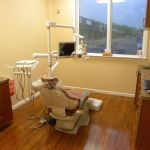Can Children Get Oral Cancer? A Comprehensive Guide to Understanding the Risks and Prevention
Oral cancer is often associated with adults, especially those with certain risk factors such as tobacco use or excessive alcohol consumption. However, many parents wonder: can children get oral cancer? While it is relatively rare, the possibility exists, and it is essential to understand the potential risks, early symptoms, and preventive measures to ensure your child's oral health remains in top shape. This guide explores how oral cancer can affect children, what parents can do to prevent it, and the symptoms to watch for.
The Growing Concern: Can Children Get Oral Cancer?
Oral cancer in children is indeed rare, but it's not impossible. It is important to note that while it’s not a common occurrence in children, the number of cases has been increasing slightly over the past few decades. Typically, oral cancers in children are linked to genetic factors or rare viral infections rather than lifestyle choices like smoking or drinking alcohol. Human papillomavirus (HPV), which can cause cancers in both adults and children, is one of the primary viral factors associated with oral cancer.
In rare cases, children with compromised immune systems due to conditions like HIV/AIDS or organ transplants may be at a higher risk for developing oral cancer. However, the vast majority of oral cancers are still diagnosed in adults. For parents, this may seem reassuring, but the growing understanding of oral cancer's various causes emphasizes the need for vigilance when it comes to oral health in children.
Understanding the Causes of Oral Cancer in Children
Although oral cancer in children is uncommon, certain risk factors can make it more likely. The following are some of the causes and contributing factors:
- Human Papillomavirus (HPV): HPV, a virus transmitted through oral contact, has been increasingly linked to oral cancers. Some strains of HPV are known to cause cancer in the mouth, throat, and tongue. Children exposed to HPV, either through birth or sexual contact later in life, may be at risk.
- Genetic Conditions: Certain genetic syndromes, such as Li-Fraumeni syndrome or neurofibromatosis, increase the likelihood of developing oral cancer. These conditions may predispose children to cancer at an earlier age.
- Immune System Deficiencies: Children with weakened immune systems due to illnesses like HIV/AIDS or those who have undergone organ transplants may be more vulnerable to cancer.
- Environmental Factors: While it’s less common in children, exposure to certain environmental factors like radiation may contribute to the development of oral cancers. Children who have undergone radiation therapy for other cancers could be at a higher risk for oral cancer later in life.
Recognizing the Symptoms of Oral Cancer in Children
One of the key challenges with oral cancer in children is early detection. The symptoms may be subtle and resemble other less serious conditions. However, parents should be aware of some early warning signs:
- Persistent Sores or Ulcers in the Mouth: If a child has sores or ulcers that do not heal within two weeks, it may be a sign of oral cancer. These sores can appear on the gums, tongue, lips, or inside of the cheeks.
- Unexplained Pain or Tenderness in the Mouth: Pain or discomfort while eating or talking, especially when it persists for weeks, could indicate a problem.
- Difficulty Swallowing: A child who has trouble swallowing or experiences pain while swallowing could be dealing with an oral health issue that requires medical attention.
- Changes in Voice or Speech: Hoarseness or a persistent change in voice may be a sign of cancer affecting the throat or mouth.
- Unexplained Bleeding or Numbness: Bleeding in the mouth or a numb feeling that doesn't go away can also indicate oral cancer, particularly if it’s accompanied by swelling in the lymph nodes.
Prevention: How Can Parents Protect Their Children?
While oral cancer may be rare in children, there are several preventive measures that parents can take to reduce the risk:
- Encourage Healthy Oral Hygiene Habits: Brushing teeth twice a day and flossing regularly can significantly reduce the risk of many oral health issues, including oral cancer. Ensure that your child visits the dentist regularly for checkups and cleanings.
- Limit Exposure to Tobacco and Alcohol: While tobacco and alcohol are primarily risks for adults, parents should model healthy behaviors for their children and avoid exposing them to these substances.
- Vaccinate Against HPV: The HPV vaccine can help protect children from the strains of the virus known to cause oral cancer. The CDC recommends that children get the vaccine around the age of 11 or 12.
- Monitor Changes in Your Child’s Mouth: Regularly check your child’s mouth for any changes or unusual growths. If you notice anything concerning, consult a dentist or pediatrician promptly.
- Protect from UV Radiation: Overexposure to UV rays can increase the risk of lip cancer. Make sure your child wears lip balm with SPF protection when outdoors.
The Role of Regular Dental Checkups in Preventing Oral Cancer
Regular dental checkups are essential in preventing and detecting early signs of oral cancer. Dentists are trained to spot the warning signs of oral cancer during routine exams. They may perform a thorough oral cancer screening, looking for abnormalities in the mouth, throat, and tongue. Parents should make sure their children visit the dentist at least once a year for a routine checkup, even if no symptoms are present.
As part of these checkups, the dentist will check for signs of oral cancers, such as lumps, unusual growths, or sores that do not heal. Early detection plays a crucial role in the successful treatment of oral cancer, so it’s vital that parents prioritize dental visits and screenings.
When Should You Seek Medical Attention?
If you notice any of the symptoms mentioned earlier in your child, it is essential to seek medical attention immediately. Early intervention is key to increasing the chances of successful treatment. The dentist or pediatrician may refer you to a specialist if needed, and they may recommend further tests, such as a biopsy or imaging scans, to determine whether oral cancer is present.
While the risk of oral cancer in children is low, being aware of the signs and prevention strategies is important. Protect your child’s oral health by encouraging good hygiene habits, scheduling regular dental visits, and taking precautions against HPV. By doing so, you can help ensure that your child’s mouth stays healthy and cancer-free.






 Dental Implants and Periodontology of Massapequa4.0 (198 review)
Dental Implants and Periodontology of Massapequa4.0 (198 review) Da Vinci Dental Specialists4.0 (312 review)
Da Vinci Dental Specialists4.0 (312 review) Lee Family Dentistry4.0 (116 review)
Lee Family Dentistry4.0 (116 review) Amazing Smiles Family Dentistry4.0 (412 review)
Amazing Smiles Family Dentistry4.0 (412 review) River City Dental4.0 (149 review)
River City Dental4.0 (149 review) DentFirst Dental Care McDonough4.0 (534 review)
DentFirst Dental Care McDonough4.0 (534 review) The Importance of Oral Health Education During Pregnancy for a Healthy Pregnancy
The Importance of Oral Health Education During Pregnancy for a Healthy Pregnancy Best Tips for Brushing Your Teeth Properly for Healthy Gums: Essential Techniques for Oral Health
Best Tips for Brushing Your Teeth Properly for Healthy Gums: Essential Techniques for Oral Health Why Skipping Dental Checkups Can Lead to Bigger Oral Health Problems
Why Skipping Dental Checkups Can Lead to Bigger Oral Health Problems Advantages of Porcelain Dental Restorations
Advantages of Porcelain Dental Restorations How Can Diabetes Cause Tooth and Gum Problems? Preventing and Managing Oral Health Issues
How Can Diabetes Cause Tooth and Gum Problems? Preventing and Managing Oral Health Issues Healthy Habits for Promoting Good Oral Health and Hygiene: Tips for a Healthy Smile
Healthy Habits for Promoting Good Oral Health and Hygiene: Tips for a Healthy Smile